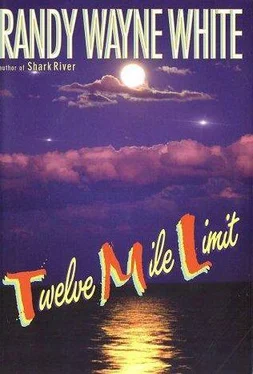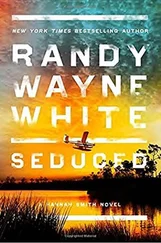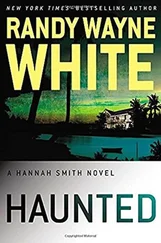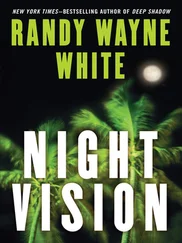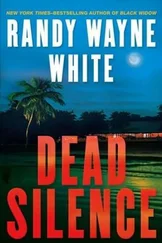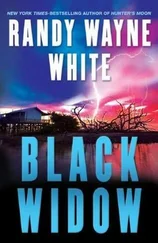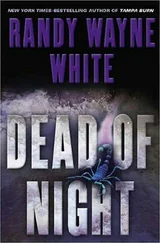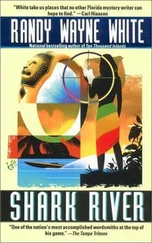Randy White - Twelve Mile Limit
Здесь есть возможность читать онлайн «Randy White - Twelve Mile Limit» весь текст электронной книги совершенно бесплатно (целиком полную версию без сокращений). В некоторых случаях можно слушать аудио, скачать через торрент в формате fb2 и присутствует краткое содержание. Жанр: Триллер, на английском языке. Описание произведения, (предисловие) а так же отзывы посетителей доступны на портале библиотеки ЛибКат.
- Название:Twelve Mile Limit
- Автор:
- Жанр:
- Год:неизвестен
- ISBN:нет данных
- Рейтинг книги:4 / 5. Голосов: 1
-
Избранное:Добавить в избранное
- Отзывы:
-
Ваша оценка:
- 80
- 1
- 2
- 3
- 4
- 5
Twelve Mile Limit: краткое содержание, описание и аннотация
Предлагаем к чтению аннотацию, описание, краткое содержание или предисловие (зависит от того, что написал сам автор книги «Twelve Mile Limit»). Если вы не нашли необходимую информацию о книге — напишите в комментариях, мы постараемся отыскать её.
Twelve Mile Limit — читать онлайн бесплатно полную книгу (весь текст) целиком
Ниже представлен текст книги, разбитый по страницам. Система сохранения места последней прочитанной страницы, позволяет с удобством читать онлайн бесплатно книгу «Twelve Mile Limit», без необходимости каждый раз заново искать на чём Вы остановились. Поставьте закладку, и сможете в любой момент перейти на страницу, на которой закончили чтение.
Интервал:
Закладка:
I stopped running, looked at her through the jungle’s vacuum of silence, and heard her say. “Good. They’re all dead now.”
Then she turned to black-beard. “I wish you had not killed this pig. He was the worst. Him, I would have taken back to my village and given to the old women for a night. They know the ways to deal with bad men. Then I would have taken his head.”
26
Her name was a windy, guttural sound- Kee-shew-ha-RA?-that I tried to pronounce several times, but couldn’t get right.
Finally, she said, “The year that the missionaries came, they called me Keesha. I hated them, but it is a name that you may use for the time we’re together.”
At the wreck site, she’d insisted that I wait while she yanked a few strands of hair from each guerrilla. It was a compromise: She’d asked me for a knife. She wanted to decapitate black-beard.
When I refused, she told me, “The things he did to me I will never say.”
After hearing that, waiting for her while she plucked out a few strands of her kidnapper’s hair seemed a minor indulgence.
Now, as she led me through the forest toward the river, walking single file and fast, I listened to her explain that she was from an Amazon people called the Jivaros, but that her smaller tribal group was called the Shuar.
“My family would be very angry at me,” she added, “if I did not exercise my right to tsantsa, or untsuri suara. Those men hurt me and my brother, so I killed them. But their spirit still remains in their hair. You would not allow me to take a head, so taking their hair is an acceptable alternative.”
Back in her village, Keesha told me, she would use beeswax to attach the hair to gourds.
“In that way,” she said, “I will still have taken their heads. When I marry, I will hang the gourds outside my door, and so continue to own my enemy’s muisak, their avenging souls. My husband will show me greater respect because of it.”
I told her, “That I don’t doubt.”
The guerrillas had crossed the river in what she called an obada, a large dugout canoe that looked to have been hollowed out using fire and an ax. It was pulled up on the bank, hidden among bushes.
“The sun will be above the trees in an hour or two,” she said. “We must get as far down the river as we can. The dead men have friends only an hour’s walk from here. A military camp. They will soon be looking for us. If they find us, they will shoot us.”
I told her, “I need to get to a telephone. It’s very important. Or a highway where I can flag down a car and get help. I have to hurry. Friends of mine, their lives depend on it.”
“The soldiers control the only road. There are many of them. You can’t help your friends if you are dead. We must go by river.”
“Is there a telephone in your village?”
The slightest hint of a smile came into her voice. “If there were a telephone in my village, I would find a new village.”
That morning, just after 6:30 A.M., the river was slowly transformed from water, to clay, and then molten wax. Then it became a tunnelway of brass streaked with golden mist. Overhead, the sky absorbed the river’s incandescence and mirrored the gradual evolutions of color and light.
We were deep in a ravine of vine and leaf, two human specks riding a vein of silver. The forest walls were sheer as rock cliffs, matted with wildflowers and shadows, but hollow, alive inside.
I was in the front of the canoe because the girl refused to let me take the stern, even though I insisted that I was very experienced in boats.
“All men say that they know boats,” she told me. “I have been building and paddling obadas all my life. Can you make such a claim?”
She was a superb paddler, no denying that. No wasted effort, no unnecessary ruddering, and she could steer a straight line, too.
So I concentrated on paddling. Hard. For the first hour, we exchanged only a few words. With the aid of the river’s steady current, we probably put seven or eight miles between us and the crash site.
Finally, Keesha stopped us, saying, “I have to make water.”
I turned to see her standing nearly naked behind me, the blue skirt in her hand, brown thighs paler than her legs, the thin strip of pubic hair very dark. There was no shyness as she squatted over the side and urinated.
As she peed, she said, “If you need to make water, this is a good time.”
So I stood, feet spread wide for balance, and did, feeling her eyes on me. There was no coyness in her. She was curious, wanted to look, and so she did. Unused to an audience, I took longer than usual to relax my bladder, and that seemed to amuse her.
As we resumed paddling, she became more talkative. The guerrillas, she said, captured her more than a month before. She’d been with her older brother, whom they shot, but she didn’t know if he was dead or not, because he’d fallen into the river.
“He will be in my village,” she said, “if he’s alive. I hope he is there. I have seven brothers and sisters, but he is my favorite. His name is Bixa, though we call him Zarabatana, because of his skill at using a pucuna. ”
I said, “A pucuna?”
“What you call a blowgun. He is an excellent hunter.”
Keesha told me that the guerrillas had used her as a slave, made her cook and clean for them, and also shared her body in bed. She’d tried to escape twice, but the guerrillas caught her and turned her over to black-beard for punishment. He’d beaten her as he raped her.
“I came to learn that it was his way,” she said. “It was the only way he could perform as a man. He had me often, and so I was beaten many times.”
“Not as a man,” I corrected her. “That’s not what men do.”
“Perhaps. But it has created a problem I did not anticipate, and caused me much fear. As soon as I get to a village, I must speak to the curandeira, the old woman who makes medicines.”
I suspected what the girl’s fear was-that she was now pregnant with black-beard’s child. But I did not press.
I listened to her say, “I’m very glad that you shot him, but I wish he had lived so we could take him back to the village. The old women. Oh! They would have enjoyed punishing him. They have ways. They know many tricks.”
I told her, “I understand now.”
We paddled all morning and did not see another human being or any sign that humans had been on the river before us.
In daylight, the forest had a different sound. Birds were wild along the riverbanks, chattering kingfishers, parrots, blue macaws, and screaming hawks. From the forest shadows also came a liquid, bell-like call-another type of bird, Keesha told me-and the grinding, chirping, cricket sound of toucans.
The electric hum and whine of insects were unceasing: cicadas and locusts and varieties of large wasps and bees that I’d never seen.
From deep in the forest and from the high sky canopy, monkeys used sound to impose themselves over other wilderness noises. Tribes of howler monkeys woofed and roared, communicating across the river. One tribe would scream as a group; a second and, sometimes, a third tribe would holler their reply. The tenor of their calls seemed territorial, combative. The rhythms were not unlike the drunken talk I’d heard among the guerrillas-men who now lay dead upriver.
The most spectacular thing I saw that morning, though, came tumbling toward us, following the course of the river as if the river’s current were generating an opposing wind. It first appeared as a glittering, metallic blue haze in the far, far distance, a quarter-mile away.
I stopped paddling to watch. What kind of cloud was this?
As it swept closer, the cloud began to oscillate in terms of its height over the water. The way it moved and reflected sunlight reminded me of the spontaneous movement of baitfish in clear ocean.
Читать дальшеИнтервал:
Закладка:
Похожие книги на «Twelve Mile Limit»
Представляем Вашему вниманию похожие книги на «Twelve Mile Limit» списком для выбора. Мы отобрали схожую по названию и смыслу литературу в надежде предоставить читателям больше вариантов отыскать новые, интересные, ещё непрочитанные произведения.
Обсуждение, отзывы о книге «Twelve Mile Limit» и просто собственные мнения читателей. Оставьте ваши комментарии, напишите, что Вы думаете о произведении, его смысле или главных героях. Укажите что конкретно понравилось, а что нет, и почему Вы так считаете.
